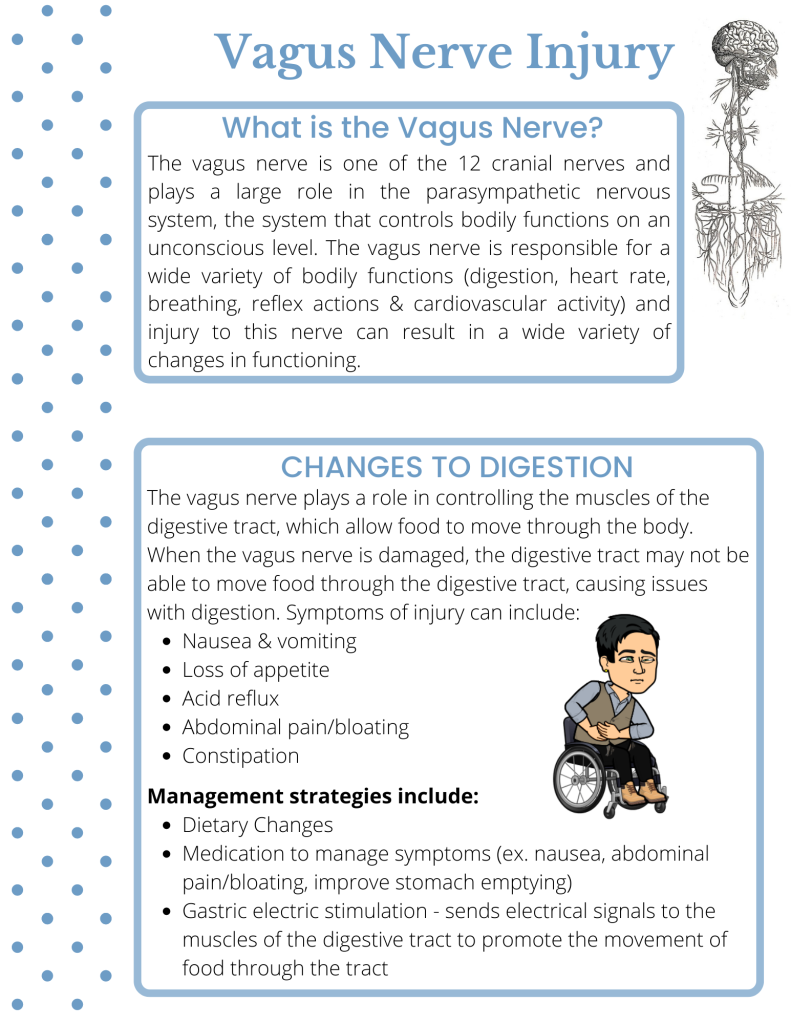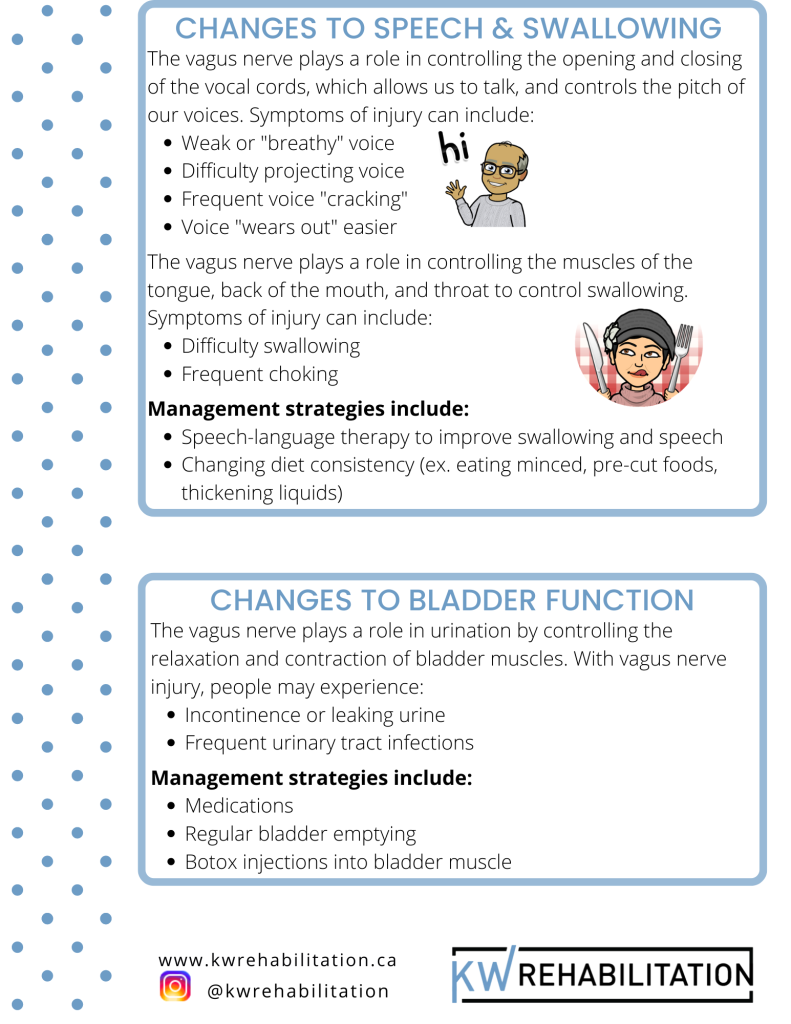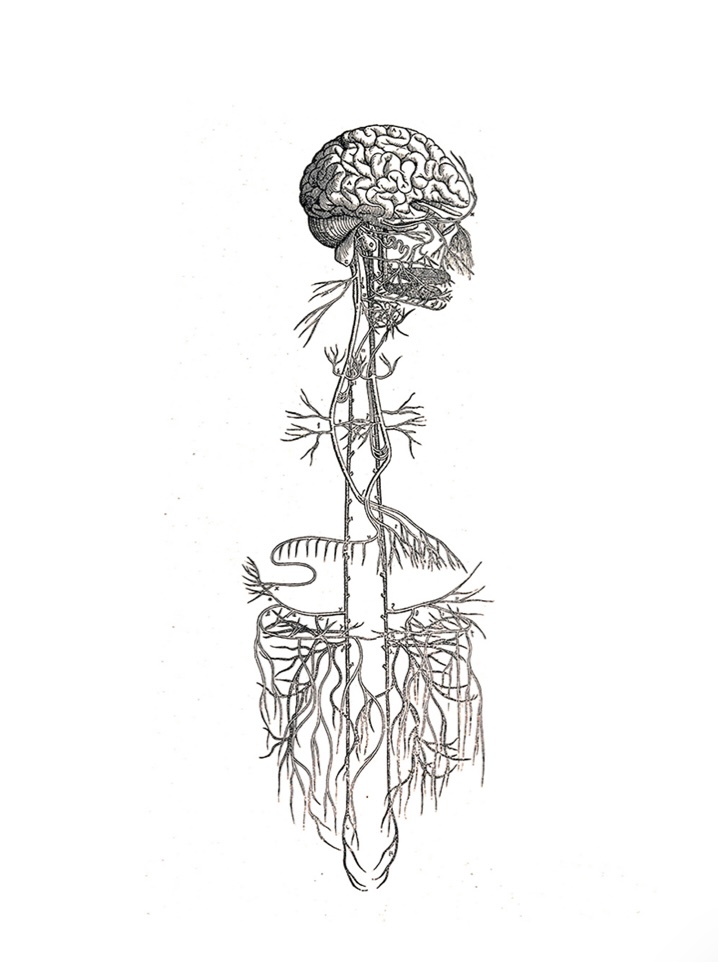The Vagus nerve represents a large portion of the parasympathetic nervous system which is responsible for controlling involuntary bodily actions. Understandably, vagus nerve injuries can result in dysfunction in many systems including digestion, breathing and bladder function. Vagus nerve stimulation, a common medical intervention, has been approved for the treatment of epilepsy, depression and stroke rehabilitation. It is noted that much of the research surrounding vagus nerve stimulation involves invasive procedures such as implanting a device that produced electric energy (“pace maker for the brain”).
The vagus nerve has become a popular topic of research as it relates to stress and anxiety management. There’s an evidence base that links vagus nerve stimulation to improved management of symptoms for individuals with treatment-resistant anxiety disorders such as PTSD and OCD. It will be interesting to see what the future holds for the efficacy of non-invasive approaches such as breathing techniques, biofeedback and yoga.


